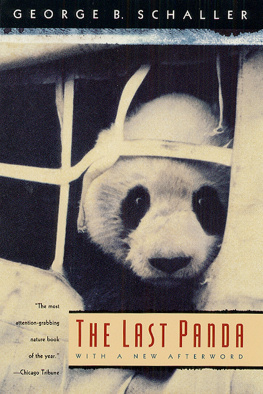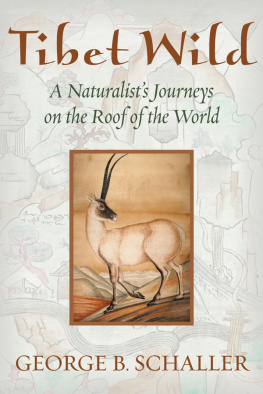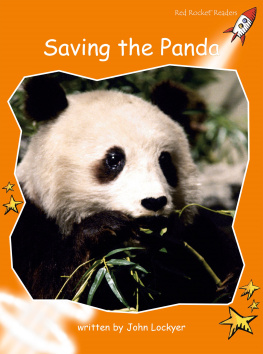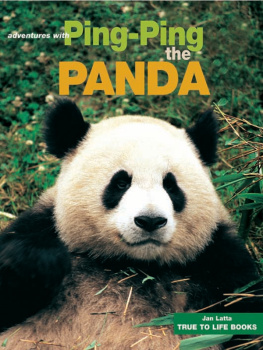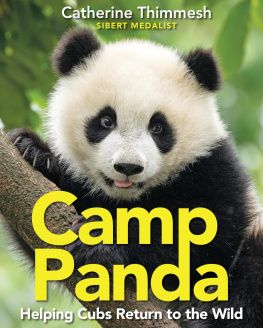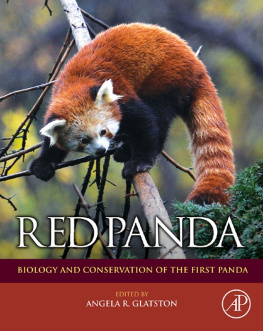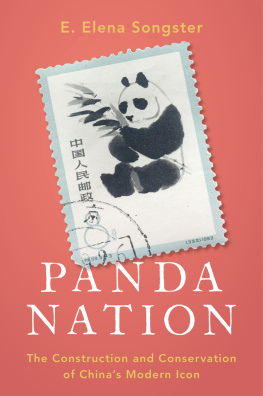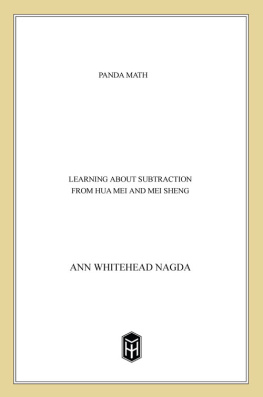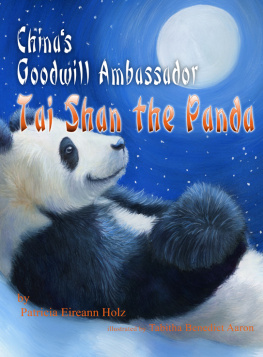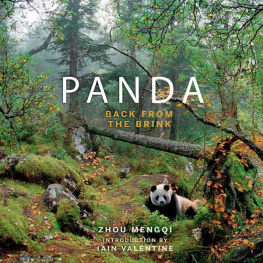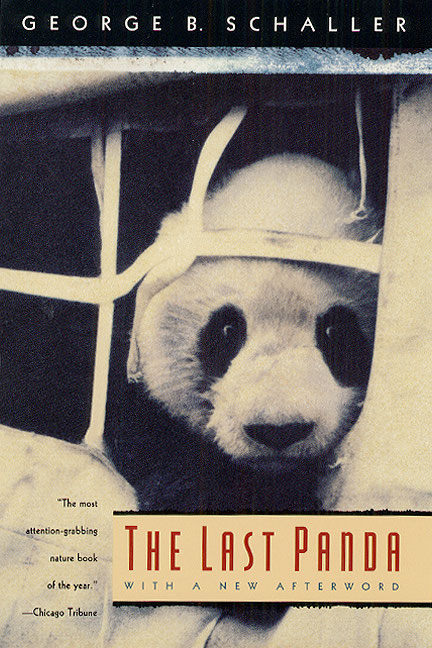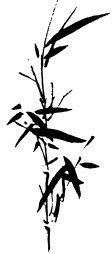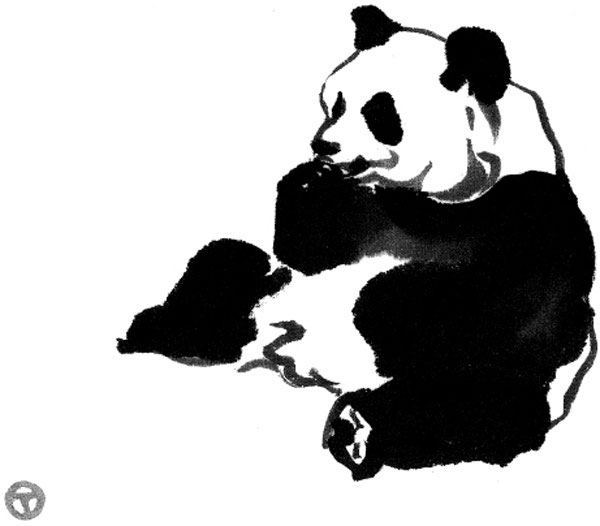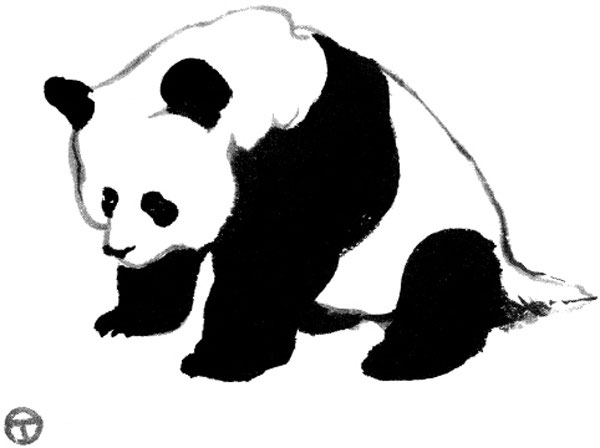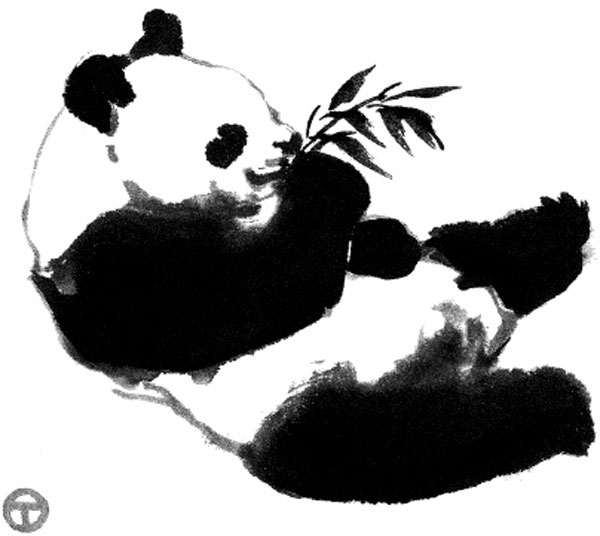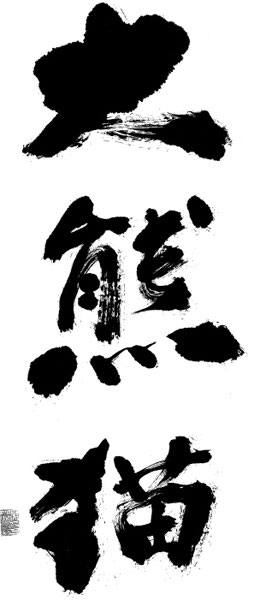The University of Chicago Press, Chicago 60637
The University of Chicago Press, Ltd., London
1993, 1994 by The University of Chicago
All rights reserved. Published 1993
Paperback edition 1994
Printed in the United States of America
02 01 00 99 98 97 96 95 94 2 3 4 5 6
ISBN: 0-226-73629-6
ISBN 978-0-226-11208-4 (e-book)
Library of Congress Cataloging-in-Publication Data
Schaller, George B.
The last panda / George B. Schaller; with a new afterword.
p. cm.
Includes bibliographical references (p. ) and indexes.
1. Giant panda. 2. Endangered species. 3. Wildlife conservation. I. Title.
[QL737.C214S28 1994]
599.74443dc20
94-27371
CIP
The paper used in this publication meets the minimum requirements of the American National Standard for Information SciencesPermanence of Paper for Printed Library Materials, ANSI Z39.48-1984.
THE LAST PANDA
George B. Schaller
With a New Afterword
The University of Chicago Press
Chicago and London
A shattering attack on the sham called panda conservation.... Taking on zoos, governments and international conservation groups that sanctimoniously swear fealty to the ideal of saving a species, Schaller charges that stupidity, greed and indifference are causing mankind to hasten the loss of the worlds wildlife.... [Schaller] details countless such frauds, cover-ups, lies and fatal mistakes that may yet doom the giant panda to extinction.
Sharon Begley, Newsweek
This very personal account offers sparkling portraits of the animals Schaller studied while perched atop the narrow crescent of mountains that form the western escarpment of Chinas densely populated Sichuan Basin.... [He] vividly describes the struggle and triumphs of capturing, radio tracking and following the elusive panda on foot. He is clearly smitten by the animals. This is no dispassionate observer.
John Seidensticker, Wall Street Journal
A unique mix of natural history and the politics of conservation, and it makes for compelling reading. Schaller presents with powerful prose the magic that the biological unknown has for him, and how he is drawn to difficult, remote and inhospitable places.... George Schallers brilliant presentation of the complexities of conservation makes his book a milestone for the conservation movement.
Devra G. Kleiman, Washington Post Book World
Schaller lays out his recollections, emotions, wisdom and fears about pandas and their conservation. And he writes superblythe book is quotably lively, varied and jumbled, riveting and often depressing, but essential reading to find out what the real world out there is like.
Brian Bertram, Nature
The Last Panda, an absorbing account of the efforts to study (and to save) a very beautiful, near mythic creature, is filled with Mr. Schallers fascinating information, shrewd commentary, and fine writing.
Peter Matthiessen
An insiders story of what went wrong in the worlds frantic efforts to save pandas, and why the prospects for the estimated 1,000 still in the wild are fast declining.
Chicago Tribune
A tough, sad account of [Schallers] years working in the cold bamboo forests of China to study, and perhaps help save from extinction, the wild panda.... A good story. It vibrates with honest pain and deep compassion. The panda truly comes alive in these pages.
Charles Petit, San Francisco Chronicle Review
Schaller, a great naturalist, has written two books in one. He has defined the great panda in nature for us, while creating a morality tale of greed, bureaucratic strife, and despoliation that have pushed the legendary animal to the brink. Vintage Schaller this: an adventure to be relived, a lesson learned.
E. O. Wilson, author of The Diversity of Life
Schaller provides wonderfully vivid descriptions of the seasons in the mountainous Wolong Reserve.... His account (and that taken from his wifes journal) of checking radio locations of three pandas every fifteen minutes, all night long on a frigid mountain ridgeline, gives real meaning to the term fieldwork.
John Alcock, Natural History
Everything you might want to know about these extraordinary creatures (including their inexplicable taste for nutrient-poor bamboo) is discussed in these absorbing pages.
Herbert Kupferberg, Chicago Sun-Times
Schaller reveals how a tragic trail of ignorance, negligence, different cultural values and a host of other human foibles worked together to quicken the demise of Chinas wildlife.... He is as sensitive to people as he is to animals, and to the nuances of Chinese culture and historyboth ancient and recentwhich make working in China such a challenge.
Sue Earle, Sunday Morning Post (Hong Kong)
To the memory of
Sir Peter Scott
Contents
From one years end to another, one hears the hatchet and the axe cutting the most beautiful trees. The destruction of these primitive forests, of which there are only fragments in all of China, progresses with unfortunate speed. They will never be replaced. With the great trees will disappear a multitude of shrubs and other plants which cannot survive except in their shade; also all the animals, small and large, which need the forest in order to live and perpetuate their species....
This Cosmos, so marvelous to those with eyes to see, is reduced to dullness by a blind and egotistical preoccupation with material things. Soon the horse and pig on the one hand, and wheat and potatoes on the other, will replace all these hundreds, these thousands of creaturesanimal and vegetablethat God has created to live among us. They have the right to life and we annihilate them and brutally make existence impossible for them.... It is unbelievable that the Creator could have placed so many diverse organisms on the earth, each one so admirable in its sphere, so perfect in its role, only to permit man, his masterpiece, to destroy them forever.
Pre Armand David
1875
Preface
Years have passed since I last saw giant pandas in the wild, yet their powerful image continues to impinge on my life. Pandas are creatures so gentle and self-contained that they still affect me by the force of their uniqueness, by their aura of mystery. Our research on pandas gained only superficial insights into their alien existence, yet to see a panda again in a zoo or photograph releases a cascade of memories, of snowbound forests, of tracking animals over mountains lost in fog, of a female panda named Zhen-Zhen methodically crunching shoots in the bamboos shadows. Feelings cannot, however, be fully recreated, and experiences cannot be truly shared. Shorn of emotion, my years with the pandas can be summarized rather briefly.

